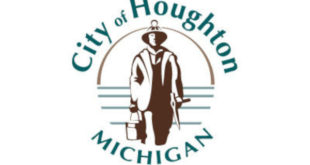UPEC’s Community Conservation Projects Grant program began in 2016 and was made possible by a bequest from UPEC member Tom Church of Watersmeet. The application deadline for 2019 grants is January 17, 2019.
 This grant is designed to enable communities in the U.P. to step up a level in their promotion of conservation values in their watershed or locality. In the past the landscape of the U.P. was often hostage to the short-sighted actions of human owners, whether large corporations or small non-industrial landowners, and to the relentless play of market forces. The opposite trend, embodied in the environmental laws of state and federal governments as well as in the private conservancy movement, works to protect natural areas for public benefit and to safeguard significant populations of fish, wildlife, and plants and the ecosystems which support them. These latter values are the conservation values which this Fund is intended to enhance at the level of community action.
This grant is designed to enable communities in the U.P. to step up a level in their promotion of conservation values in their watershed or locality. In the past the landscape of the U.P. was often hostage to the short-sighted actions of human owners, whether large corporations or small non-industrial landowners, and to the relentless play of market forces. The opposite trend, embodied in the environmental laws of state and federal governments as well as in the private conservancy movement, works to protect natural areas for public benefit and to safeguard significant populations of fish, wildlife, and plants and the ecosystems which support them. These latter values are the conservation values which this Fund is intended to enhance at the level of community action.
The Upper Peninsula is in an envious position in terms of conservation planning. Over forty percent of the landscape is protected, which may be enough to insure most of our native flora and fauna will not be pressed into extinction, even with the added stresses of climate chaos and invasive species. Our task is to hold our ground, and steadily to enhance the capacity of our public and private lands to support the full abundance of wildlife that once characterized the Great Lakes biosphere. The return of all the top predators — wolves, cougars, lynx — is essential to a fully functioning ecosystem, where all the players are present in the drama of the evolution of life. In its small way, the new UPEC grant program offers all of us, within our communities, the chance to be players, too, in what is being called the rewilding of North America.
 Central to this new grant program is consensus-building among community stakeholders: naturalists, city and township board members, planners, recreational groups, local job providers, civic and religious groups, schools and universities. One or more of these stakeholders may initiate a grant request. The “homework” phase in applying for a grant is understanding local land use: public and private ownership patterns; economic, residential, and recreational uses of the land; the capacity of local fields, streams, woodlots, and forests to support native fish and wildlife. The second task is identifying opportunities for enhancing these natural areas, perhaps by cleaning up abandoned or vacant sites, restoring wetlands, or removing barriers on streams. Finally, community stakeholders must develop a plan and timeline for achieving these conservation actions. The UPEC grant is to facilitate planning and enable activities; it is assumed that on-the-ground remedial or enhancing activities may require additional and different funding.
Central to this new grant program is consensus-building among community stakeholders: naturalists, city and township board members, planners, recreational groups, local job providers, civic and religious groups, schools and universities. One or more of these stakeholders may initiate a grant request. The “homework” phase in applying for a grant is understanding local land use: public and private ownership patterns; economic, residential, and recreational uses of the land; the capacity of local fields, streams, woodlots, and forests to support native fish and wildlife. The second task is identifying opportunities for enhancing these natural areas, perhaps by cleaning up abandoned or vacant sites, restoring wetlands, or removing barriers on streams. Finally, community stakeholders must develop a plan and timeline for achieving these conservation actions. The UPEC grant is to facilitate planning and enable activities; it is assumed that on-the-ground remedial or enhancing activities may require additional and different funding.
The following list contains examples of ways in which communities may enhance conservation values at the local level. It is not an exhaustive list.
Community forests – This federal program under the USDA supports qualified organizations in identifying, purchasing, and managing a forested part of a local landscape as a community asset. A fifty percent match is required for the purchase of private properties that are then managed by a partnership of community members and groups. The time frame is a 100-year perspective that combines economic, social, ecological, and recreational uses of the community forest. The UPEC grant would be a planning grant to help a community succeed with this program initiative.
Heritage days – How a community thinks of itself can be transformed through a local festive event that addresses the region’s history and cultural traditions, its stewardship of the landscape, and the knowledge of local animals and plants. Several days can be devoted to lectures, demonstrations, and performances, as well as field trips to highlighted sites. The grant would enable a mixture of local and outside speakers and perspectives.
Restoration projects – Various abandoned, delinquent, or vacant lands can be made productive and ecologically healthy once again through timely interventions, such as cleanups, invasive eradication, and reforestation. Communities that plan such interventions through mobilizing volunteers and school-aged youth may be eligible for funds to assist with mapping, planning, and implementation.
Enhanced protection campaigns – Public lands (federal, state, county, township) are managed through various classifications that determine what can be done and not done on them. Concerted citizen action can change these management classifications, for example by nominating special areas within national and state forests for wilderness or wild and scenic river designations. Citizens can also create watershed study groups that engage private as well as public landowners in exploring ways to improve the health and connectivity of watersheds. Zoning reform is another tool for cities and towns to use in addressing the disruption of new and perhaps inappropriate industrial activities within their borders.
Awards
Community Conservation grants up to $10,000 each may be awarded annually by the UPEC Board. The money budgeted for this fund shall be recommended by the Treasurer and approved by the Board at the January Board meeting. The number and size of the grants for any given year will vary, depending upon the perceived quality of the applications and funding constraints; in some years none may be awarded.
Deadlines
Grant applications are due January 17. Awards will be announced in February. Funding for the projects will be available from April 1 to March 31 of the following year, although extensions may be possible.
COMMUNITY CONSERVATION GRANTS APPLICATION GUIDELINES
UPEC invites high-quality projects on a competitive basis that enhance conservation values in U.P. communities and are characterized by many of the following:
• receives favorable attention and has a high profile and visibility
• appeals to and will be experienced by many community residents
• involves worthy activity for children and young adults to assure an interest in conservation values by future generations
• has multiplier and leverage qualities
• can be replicated or become a permanent addition to the life of a community
• is well planned and implemented by individuals or groups
• involves service of volunteers
• has a detailed budget, income and expenses
• adds to the body of research about the natural and cultural history of a region
The entire application, except for signatures, must be typed (not handwritten). The application must not exceed 10 pages. Grant proposals must relate to a project occurring between April 1 of the grant year and March 31 of the following year. Extensions of the grant period may be requested.
Grant applications may be sent via email or mail. All applications must be emailed or postmarked by January 17, 2019. This deadline relates to all application materials, including attachments and letters of support sent separately. If you send support material, send only copies of originals. None will be returned. Do not send books, CDs, tapes, DVDs or videos. To send via email: upec@upenvironment.org. To send via mail: UPEC, Box 673, Houghton, MI 49931 (must be postmarked no later than deadline date.) If you have questions, contact: upec@upenvironment.org
 Keweenaw Report Your Source for Local News and Sports
Keweenaw Report Your Source for Local News and Sports





